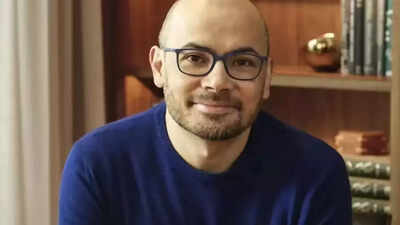Google DeepMind CEO Demis Hassabis reveals AI can replace doctors in healthcare but not nurses; here’s how |

Artificial Intelligence (AI) has shifted from being a futuristic concept to a rapidly evolving reality impacting every industry. With advanced machine learning models, automation systems, and AI-powered decision-making tools, tasks once performed by humans are now handled with speed and precision by algorithms. This has triggered global concern about potential job losses. Top tech leaders have issued warnings that AI will significantly disrupt the workforce. Amazon CEO Andy Jassy has admitted that automation will reduce certain jobs within the company. Similarly, Nvidia CEO Jensen Huang stated that AI will impact “everybody’s jobs” in some capacity, although he expects it to also create new opportunities. Google DeepMind CEO Demis Hassabis predicts the most dramatic changes will occur within the next five to ten years, transforming entire job markets.
DeepMind CEO explains AI in healthcare can replace doctors but not nurses
When asked about the possibility of artificial general intelligence (AGI) performing all human tasks, DeepMind CEO Hassabis highlighted an important distinction:Doctors’ diagnostic tasks: AI could analyse medical data, scans, and test results faster and more accurately than human doctors, potentially replacing or assisting in diagnosis and treatment planning.Nursing and empathy-based roles: Nurses, however, provide emotional support, physical care, and human empathy that technology can’t replicate. A robotic nurse may be efficient but lacks the ability to emotionally connect with patients, a critical part of caregiving.This example shows that while AI in healthcare may replace certain intellectual tasks, professions relying on emotional intelligence will remain human-centered.According to Hassabis, the workplace of the future will integrate humans and AI collaboratively. AI will handle data-heavy, repetitive, and analytical processes, allowing humans to focus on creative problem-solving, emotional interaction, and leadership roles. This shift will require governments and industries to invest heavily in reskilling programs to prepare workers for AI-driven environments.
Other top CEOs warn AI will reshape jobs worldwide and urge workers to adapt quickly
Andy Jassy’s remarks highlight a future where AI automation tools replace repetitive and operational tasks. Amazon already relies on robotics and intelligent software to manage logistics, inventory, and supply chain processes. Jassy believes that as these technologies mature, fewer human workers will be required for jobs like order processing and warehouse management. However, he noted that the shift doesn’t necessarily mean fewer opportunities overall but rather a need for upskilling and reskilling so employees can transition into more technology-driven roles.Jensen Huang, whose company Nvidia provides the graphics processing units (GPUs) powering modern AI systems, offered a candid view on AI’s impact:“Everybody’s jobs will be affected. Some jobs will be lost. Many jobs will be created.” Huang believes AI’s productivity gains will help industries perform tasks faster and cheaper, which may reduce demand for certain roles but open new ones focused on AI development, data analysis, and advanced engineering. He expressed hope that economic growth from AI adoption will ultimately “lift society” rather than harm it.Demis Hassabis, CEO of Google DeepMind and a key architect of advanced AI systems, views AI as an additive rather than purely disruptive technology. He explained that as AI capabilities expand, new job categories will emerge—roles that use AI to enhance human output rather than replace it entirely. Historically, technological revolutions (like industrial machines or computers) displaced certain jobs but also created industries that didn’t exist before. Hassabis believes this trend will continue:“New jobs will be created that are actually better, that utilise these tools or new technologies.”AI’s role in jobs and healthcare related FAQsCan AI fully replace doctors?AI can handle data analysis, diagnostics, and treatment recommendations faster than humans, but doctors will still oversee complex decision-making and patient care.Why can’t AI replace nurses?Nursing requires emotional support, hands-on care, and human empathy—qualities that machines and robots cannot replicate effectively.What is Demis Hassabis’ prediction about AI and jobs?He predicts massive workplace changes within 5–10 years, with some jobs disappearing and new ones emerging.How are other CEOs reacting to AI job disruption?Amazon CEO Andy Jassy expects automation to cut some jobs, while Nvidia CEO Jensen Huang believes AI will affect “everybody’s jobs” but also create new opportunities.What kind of jobs will grow in the AI era?Roles focused on AI development, creative problem-solving, emotional intelligence, and advanced data management are expected to increase.Also Read | Instagram changes live streaming rules: Who can still go live and who’s restricted; check if you are on the list and other key details





